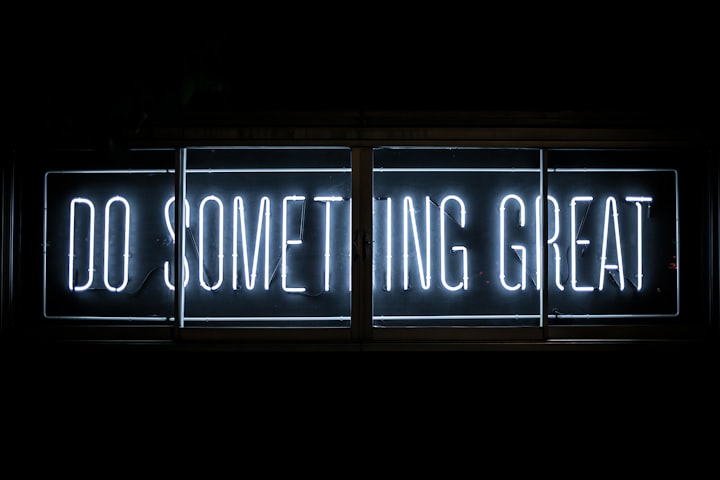Building Back Trust in Information
How we can overcome Information overload

Information
My understanding of information is: that which is learned, understood, and/or represented about someone or something – and can come from any number of places, individuals, institutions, etc. We are now living in an age where information is captured, stored, conveyed, disseminated at a much faster pace than ever before. So what I will try to relate in this writing is how ‘Trust’ in information has been degraded to the point where we all have become experts in the information we choose to consume and that which we choose to deliberately ignore as false because of where or from whom it is coming.
Philosophy and Science
In my undergraduate studies I learned simply that Philosophy is a body of questions. Implying that in all sectors of life there are questions that largely remain unanswered such as (not to be confused with my own beliefs); does God really exist?, what are morals?, are morals relative?, and so on. The reason some question remain unanswered is generally because there is no evidence, intrinsic or otherwise, to support the answers to them. Some answers are based in faith which is antithetical to intrinsic evidence based ones. And this is not a statement of one being truer than the other.
Additionally, what I also learned is that as soon as these questions (that start out as theories in philosophy or otherwise) are answered with concrete evidence to support the answers, they at that point become Science. Science therefore, has served as the basis for many advances in the world, whether it be in Economics, Social Sciences, Technology, etc.
Institutions
The dictionary definition for Institution is that it is “a society or organization founded for a religious, education, social, or similar purpose” or that it is “an established law, practice, or custom.” Any number of things can fit these definitions and therefore be deemed institutions. Institutions disseminate Information. And in this day and age where the world is more interconnected it becomes more inevitable and imperative that information is disseminated at the institutional level so as to reach maximum exposure in order to afford everyone access to the same critical information that can be the difference between life and death for some people.
Society and Community
Society and/or Community can largely be inter-changeable in as far as how they are defined. One such way to define it is that it is simply when you have a number of people living together or having to rely on the same set if institutions and therefore information. You can also add that these people have some characteristic in common. In any given corner of the world you can find a community, society, country, or a continent. There are all entities that are governed by some level of a governing body.
Government
The website dictionary.com defines government as “the political direction and control exercised over the actions of members, citizens, or inhabitants of communities, societies, and states; direction of the affairs of a state, community, etc.; political administration.” It goes on to add a quote that says “Government is necessary to the existence of a civilized society.”
States and nations are fairly old concepts and so are kingdoms. Even in kingdoms we see institutions governing over the people of the kingdom. In some cases these were religious institutions. Because these institutions produce and release information as much as they consume, it creates the moral imperative to have societies that are reasonably able to trust the information they consume.
Trust in Information
Trust in information is simply being able to believe and thus rely on the information being consumed at any given time. We all consume information as individuals and this information comes from a myriad of places. If we are not able to trust the information we receive, everything that holds us together as societies, communities, nations, etc., falls apart, slowly yet surely. This has been true throughout history as it comes to kingdoms that have come and gone, nations that have fallen apart, and common among these that has led to the degradation of trust in information is Greed.
Greed is the easiest concept to understand because it is simply something that some people both in power and otherwise, have worn proudly and openly in some cases and usually shielded by personal ideals that do not serve the whole society but the individuals themselves. It is simply a selfish desire for a greater good (power, wealth, or otherwise).
If a nation does not exist is a vacuum, then it must be understood that it is held together by the collective desire for all stakeholders – societies, communities, entities, institutions, and individuals – to see a common good. That good could be simply to live, to remain a sovereign country, and everything in between. Therefore we cannot have a society where the wrong or simply bad information is fed into the pipelines of institutions, causing a fundamental distrust in the information being consumed by individuals or otherwise. This creates enough chaos to the point that any given good or critical information about anything has no the same equal chance to be distrusted as the bad information from deliberately misleading forces with ulterior motives.
Building Trust in Information
It is, at a fundamental level incumbent on the individuals to review the information for its veracity. But then this idea presupposes that all individuals are equal and therefore have access to the same institutions and information sources that they would be reasonably expected to do the same amount of vetting. Because this is not true, however, it becomes increasingly important for people in positions of power – be it government, or simply community leaders – to vet information and be sure that what they infer, disseminate, teach, entrust, etc. is information that helps build and not tear down. This in order to avoid what the Chinese may term as Lingchi – Death by a thousand cuts – of a society or a nation. If the information being fed into societies is continually bad information, then the reasonable expectation for the future of that society are bad outcomes.
In the end
We have had so much bad information in the current time we are living in. And in a year and time period in history where we have been rocked by a number of unexpected events including but not limited to the greatest health crisis, causing uncertainty in the economy and an expectation of a future that may not look anything like what we have been accustomed to, having bad information overload can only assure us certain failure. Because we are all members of the same collective societies, communities, nations, and the same world, it is important to do what we can on both an individual basis and institutional basis to stump out the desire to rely on bad information. We have to be flexible enough to accept when our information is wrong and be able to adjust. It is not weak to adjust our opinions, rather it is weak to stand firm in a position we know to be wrong simply because we had once supported the idea.
In whatever we do, we should ask ourselves; is this position as good for me as it is for the next person?, is this good for everyone concerned?, does this advance the good of all society?, do I really want this position so bad that it does not matter who it hurts? These may seem small but can help us lead ourselves forward and to a place were we can begin to trust in the information we get from credible institutions. If I’m not a scientist I should be able to trust in the information coming from a scientist and believe they have my best interest in mind. Same with Economics, and any other specialized area that would normally require expertise in order to produce credible information.
We can do better.
About the Creator
Mabvuto Kaela
Originally from Africa, I have grown interested in the art of expression and writing, especially since my brother died earlier this year (2020). I feel passionately that publishing is one way to express my creative voice and ideas on life.






Comments
There are no comments for this story
Be the first to respond and start the conversation.